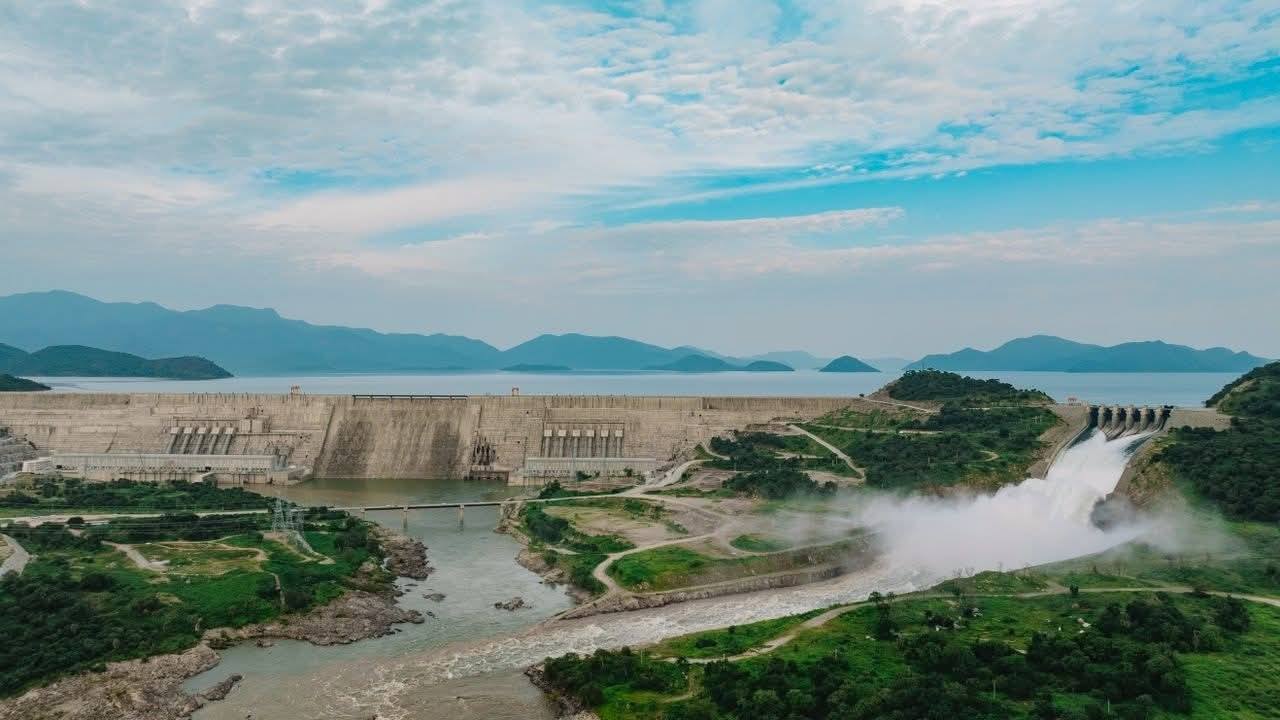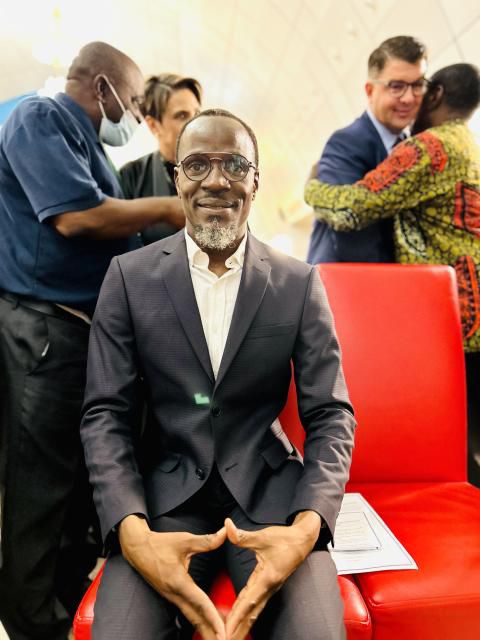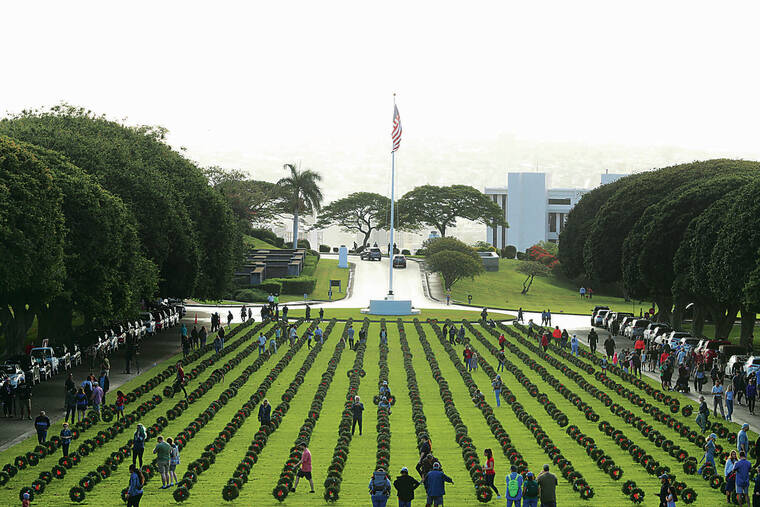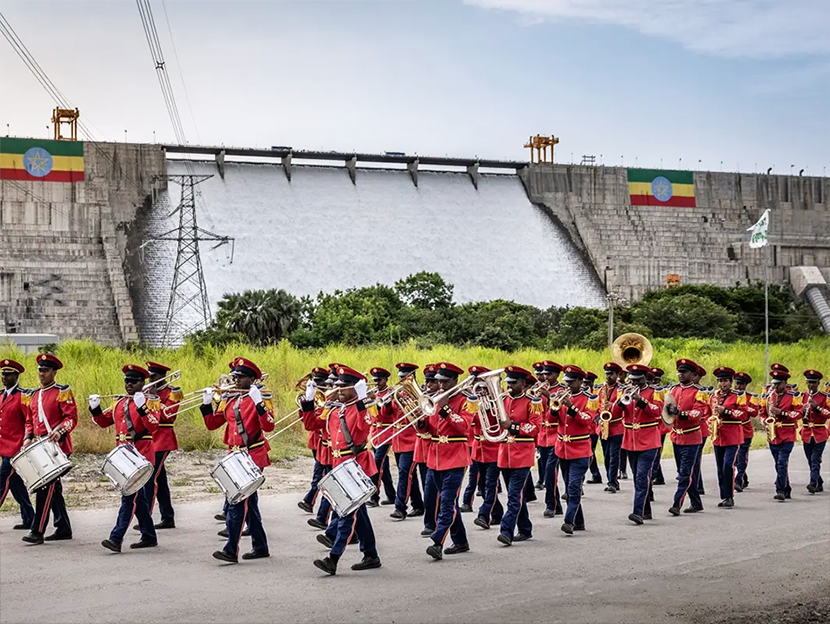By Ethioreview news
Copyright ethioreview

For Ethiopia, the triumph of the GERD presents its own test. Having defied its neighbours and realised a decades-old dream, financed not by international institutions but largely by the contributions of its own citizens, it must now decide, will it leverage the dam for genuine regional integration, as Abiy’s rhetoric of “shared opportunity” suggests?
Theh Arab weekly –
For more than a decade, the Grand Ethiopian Renaissance Dam (GERD) was billed as the flashpoint for what many believed would be the biggest water war in modern history.
The narrative was compelling and simple: a rising upstream power, Ethiopia, was building a colossal dam that would choke the lifeblood of the historic downstream hegemon, Egypt, leading inevitably to conflict. That story is now officially history, terminated on September 9, as Ethiopian Prime Minister Abiy Ahmed inaugurated the completed $5 billion dam, hailing it as the “greatest achievement in the history of the Black race.”
The old levers of influence, once firmly in Egyptian hands, have rusted and broken. The downstream alliance has crumbled, international mediation has evaporated, and a new, more complex game is now being played across the Nile Valley, a game for which the GERD is no longer the prize, but the board itself.
The most significant factor in this new reality is the definitive closure of the military option for Egypt. The bellicose rhetoric of the past, which once dominated headlines, now rings hollow. One recalls former US President Donald Trump’s blunt assessment in 2020 that Egypt would eventually “blow up that dam.” At the time, the statement reflected a real, if extreme, policy option under consideration in Cairo.
Today, that option is politically and militarily inconceivable. Egypt’s hands are full. The devastating war in Gaza, a crisis now centred even more squarely on Cairo following Israel’s strikes on Qatar, and the ensuing humanitarian catastrophe have consumed its diplomatic, economic and security bandwidth. As a critical interlocutor for Gaza, a host to millions of refugees and a bulwark against wider regional conflict, Egypt simply does not have the appetite for military adventurism on its southern flank. A war with Ethiopia, a nation of 125 million people, is a risk Cairo cannot, and will not, take.
This strategic retreat is not just a matter of circumstance, but of policy. While its diplomats continue to condemn Ethiopia’s “unilateral actions” and issue stern warnings about its “existential threat,” Egypt’s planners are quietly engineering a future that accommodates the GERD. The evidence lies in its massive investment in desalination.
Prime Minister Mostafa Madbouly recently announced an ambitious plan to produce ten million cubic metres of desalinated water daily within the next six years. With nearly 100 desalination plants already operational and more planned in partnership with international firms, Egypt is re-engineering its water security by reducing its near-total dependence on the Nile. It is a tacit acknowledgement that the old hydro-political order, underpinned by colonial-era treaties from 1929 and 1959 that granted it the lion’s share of the water, is gone forever. Cairo is now planning around the dam, not for its destruction.
If Egypt’s hands are tied, Sudan’s are broken. Once the crucial, if often ambivalent, downstream partner, Sudan has been consumed by a brutal civil war since April 2023. The country’s diplomatic weight has crumbled as it becomes a battleground for regional proxy wars. The Sudanese Armed Forces (SAF)-led government in Port Sudan is existentially dependent on Egypt as its primary military and political backer, forcing it to echo Cairo’s anti-GERD line in public forums.
But the reality on the ground reveals a far more desperate and complex picture. A secret document revealed by Al Jazeera shows that in October 2022, before the civil war but when the state was already fragmenting after its 2019 revolution, Khartoum signed a technical agreement with Ethiopia on the filling and operation of the GERD. This was a quiet recognition by Sudan, with a border which sits just nine miles from the GERD, that the project’s completion was a foregone conclusion and that it needed a working relationship with Addis Ababa to manage water flows for its own dams and to secure its electricity supply.
Today, that dependency is especially evident. Even as Cairo props up the SAF, Ethiopia supplies Sudan with electricity, accruing a mounting debt of over $90 million that has gone unpaid for three years. Sudan is therefore rhetorically aligned with its Egyptian patron while practically dependent on its Ethiopian adversary. This fragmentation has shattered the downstream bloc, leaving Egypt diplomatically isolated.
Moreover, another significant pivot has been that of the United Arab Emirates. Once positioned as the key mediator after US and World Bank-led talks stalled, the UAE has transitioned from neutral broker to vested stakeholder. The recent power purchase agreement between Ethiopian Electric Power (EEP) and a firm linked to the UAE’s National Security Adviser, Sheikh Tahnoon bin Zayed, is a tangible sign that Abu Dhabi is not just accepting the new reality but is actively capitalising on it.
Unable to rely on its old allies or mediators, Egypt has been forced to construct a new coalition. Ethiopia’s provocative deal with independence-seeking Somaliland in 2024 for port access, a move which bypassed and angered the Federal Government of Somalia, provided the perfect catalyst. Cairo, seeing its opportunity, moved swiftly to formalise a security pact with Mogadishu, creating the cornerstone of what has become a new Eritrean-Egyptian-Somali axis of containment.
The tripartite alliance delivered distinct advantages for its members: for Egypt, it gained a strategic foothold on Ethiopia’s eastern border; for an isolated Eritrea, it provided a powerful ally against Abiy’s aggressive designs on the port city of Assab; and for Somalia, it offered added support in fighting al-Shabaab as well as a security guarantee against the potential dismemberment of its territory, a direct response to Ethiopia’s controversial port deal with the breakaway region of Somaliland.
Yet, this axis of containment is built on a foundation of convenience, not conviction, rendering it inherently fragile. No one demonstrates this better than Somalia’s President Hassan Sheikh Mohamud. He eagerly accepted Egypt’s military support, but with a crucial caveat: his country’s internal security is inextricably linked to thousands of Ethiopian soldiers. These forces operate in a dual capacity: some as part of the formal African Union mission, but an even larger contingent deployed under separate bilateral agreements.
A permanent rupture with Addis Ababa would therefore trigger a security catastrophe, creating a vacuum that Al-Shabaab would immediately exploit. This is why, in a move that surprised observers, President Mohamud flew to Ethiopia to be photographed laughing with and hugging Prime Minister Abiy at the GERD inauguration. His offer to mediate the Nile dispute was the final, clear signal: though the Somaliland tensions persists and Turkish-mediated talks have stalled, Somalia would act as a neutral peacemaker, not an Egyptian proxy.
Other upstream and Nile Basin countries are making similar calculations. Kenya, whose president William Ruto, also attended the inauguration, is already a customer for Ethiopian electricity and sees its future intertwined with a regional power grid centered on Ethiopian hydro-electric power. South Sudan, a fragile state courted by both sides, finds itself weighing its historical ties to Egypt, a source of valuable diplomatic support and humanitarian aid, against the pull of its now energy-rich neighbour, whose vision of a “shared future” President Salva Kiir endorsed by committing to become a key customer for GERD-generated power.
For Ethiopia, the triumph of the GERD presents its own test. Having defied its neighbours and realised a decades-old dream, financed not by international institutions but largely by the contributions of its own citizens, it must now decide, will it leverage the dam for genuine regional integration, as Abiy’s rhetoric of “shared opportunity” suggests?
Or will it succumb to the temptations of nationalist expansionism, fuelled by the prime minister’s vows to correct the “historical mistake” of losing a Red Sea port, and plunge the Horn into a new and more destructive cycle of conflict?
The dam is built, but the new story of the Nile is only just beginning.
Written Byn Elfadil Ibrahim
Elfadil Ibrahim is a writer and analyst focusing on Sudanese and Arab politics.



